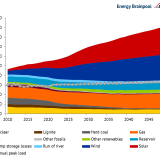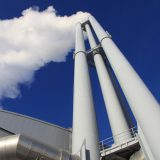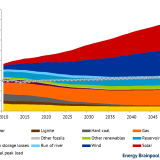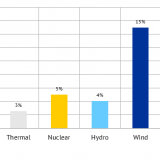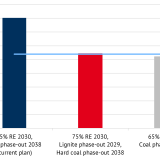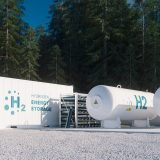With the current “EU Energy Outlook 2050” Energy Brainpool shows long-term trends in Europe. The European energy system will change dramatically in the coming decades. Climate change and ageing power plants are forcing the European Union and several countries to change their energy policies. In addition, there are significant market changes: rising CO2 certificate prices lead to higher profitability of renewable energies, keyword: Power Purchase Agreements (PPAs). What do these developments indicate for power prices, revenue potential, and risks for photovoltaics and wind?
Continue reading


